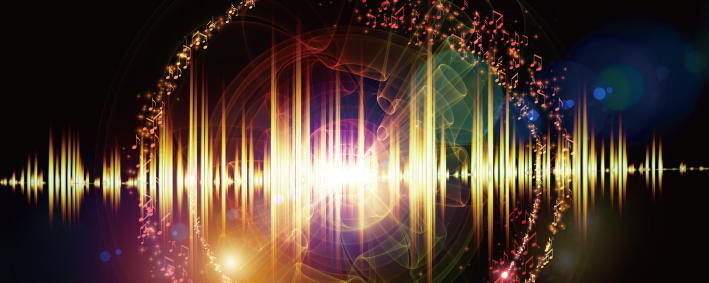 |
CCST9014 Scientific and Technological Literacy
|
Course Description
[This is a certified Communication-intensive (Ci) Course which meets all of the requirements endorsed by HKU’s Senate, including i) the teaching and assessment of oral and written communication ‘literacies’; and ii) at least 40% of the course grade assigned to communication-rich assessment tasks.]
The course aims at an appreciation of the close connection between music and science that has existed historically from Pythagoras into modern times. The essential physics of musical sound production and analysis will be provided in order to facilitate the elementary principles behind wind, string and percussion instruments and their characteristic timbre. The development of scales from fundamental principles will be dealt with leading to an appreciation of some of the subtle differences between Chinese and Western music. Contemporary music and science interactions will focus on electronic music and the working principles of modern instruments such as the electric guitar. Brief introduction to concert hall design and digital signal processing will be made. Finally, some scientific understanding of musical appreciation will be given by looking at the factors that make music pleasing.

Learning Outcomes
On completing the course, students will be able to:
- Demonstrate appreciation of the close ties there have been between the study of music and science over the centuries, and how in the modern era close ties still exist but for various reasons are largely ignored.
- Explain the production of musical tone and timbre in musical instruments using the scientific principles and understanding of sound propagation, waves and harmonics.
- Apply simple mathematics to the construction of different musical scales (just, equal, meantone) and appreciate the historical development of scales in both Europe and China.
- Realize and discuss coherently the philosophical issues at the science and music interface.
- Demonstrate academic research capabilities by carrying out a research project on topics relating science and music.
Offer Semester and Day of Teaching
Second semester (Wed)
Study Load
| Activities | Number of hours |
| Lectures | 24 |
| Tutorials | 8 |
| Reading / Self-study | 50 |
| Assessment: Essay / Report writing | 20 |
| Assessment: Presentation (incl preparation) | 15 |
| Assessment: In-class test (incl preparation) | 20 |
| Total: | 137 |
Assessment: 100% coursework
| Assessment Tasks | Weighting |
| In-class test | 40 |
| Project | 30 |
| Group project presentation | 30 |
Required Reading
Selections from:
- Chen, C. (1996). Early Chinese work in natural science: A re-examination of the physics of motion, acoustic, astronomy and scientific thoughts. Hong Kong: Hong Kong University Press.
- Parker, B. (2009). Good vibrations: The physics of music. Baltimore: Johns Hopkins University Press.
- Powell, J. (2010). How Music Works: The Science and Psychology of Beautiful Sounds, from Beethoven to the Beatles and Beyond. Little, Brown and Company.
- White, E. H., & White, D. H. (2014). Physics and Music: The Science of Musical Sound. Dover Books on Physics.
Course Co-ordinator and Teacher(s)
| Course Co-ordinator | Contact |
| Professor T.T. Luu Department of Physics, Faculty of Science |
Tel: 3917 2364 Email: ttluu@hku.hk |
| Teacher(s) | Contact |
| Professor T.T. Luu Department of Physics, Faculty of Science |
Tel: 3917 2364 Email: ttluu@hku.hk |

